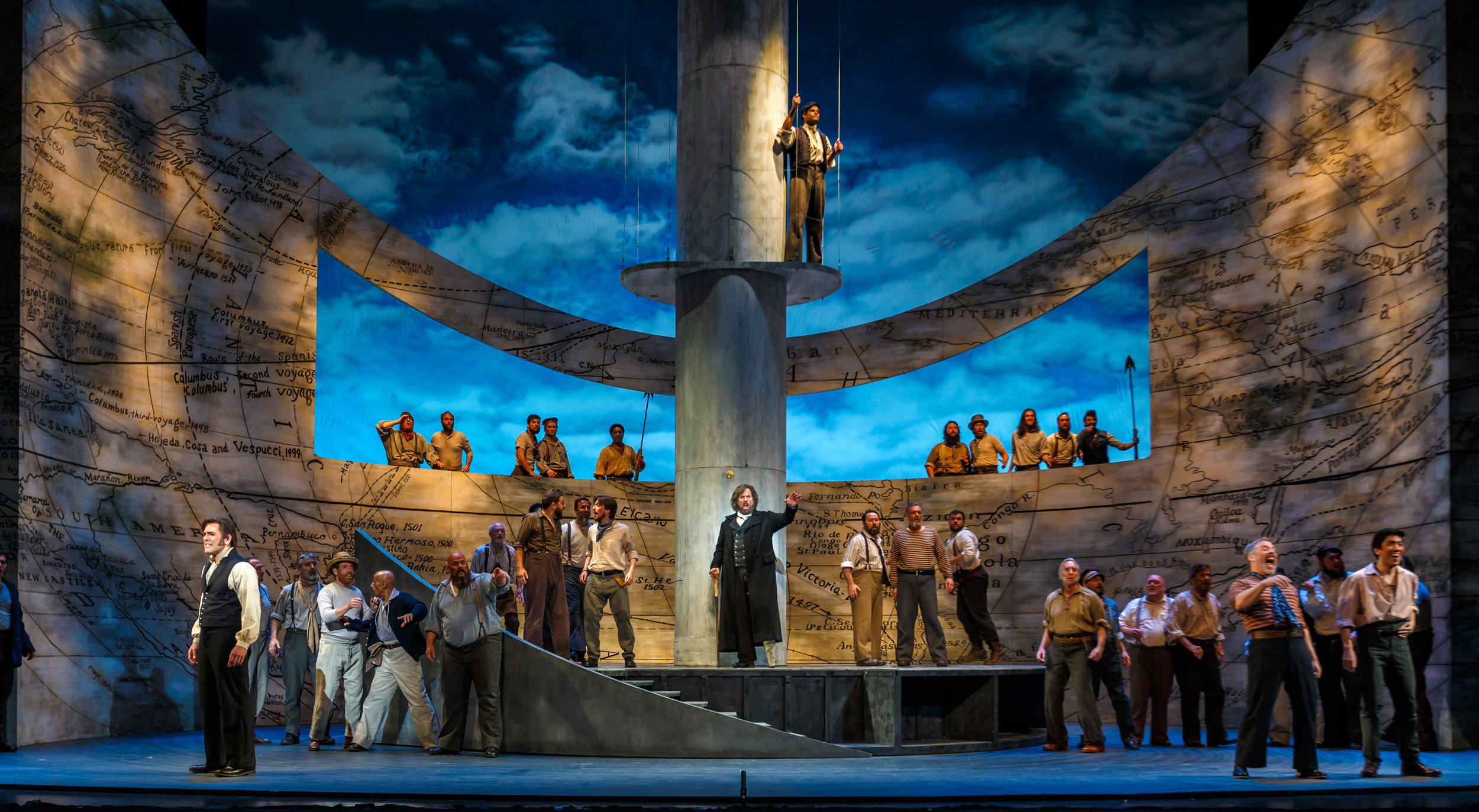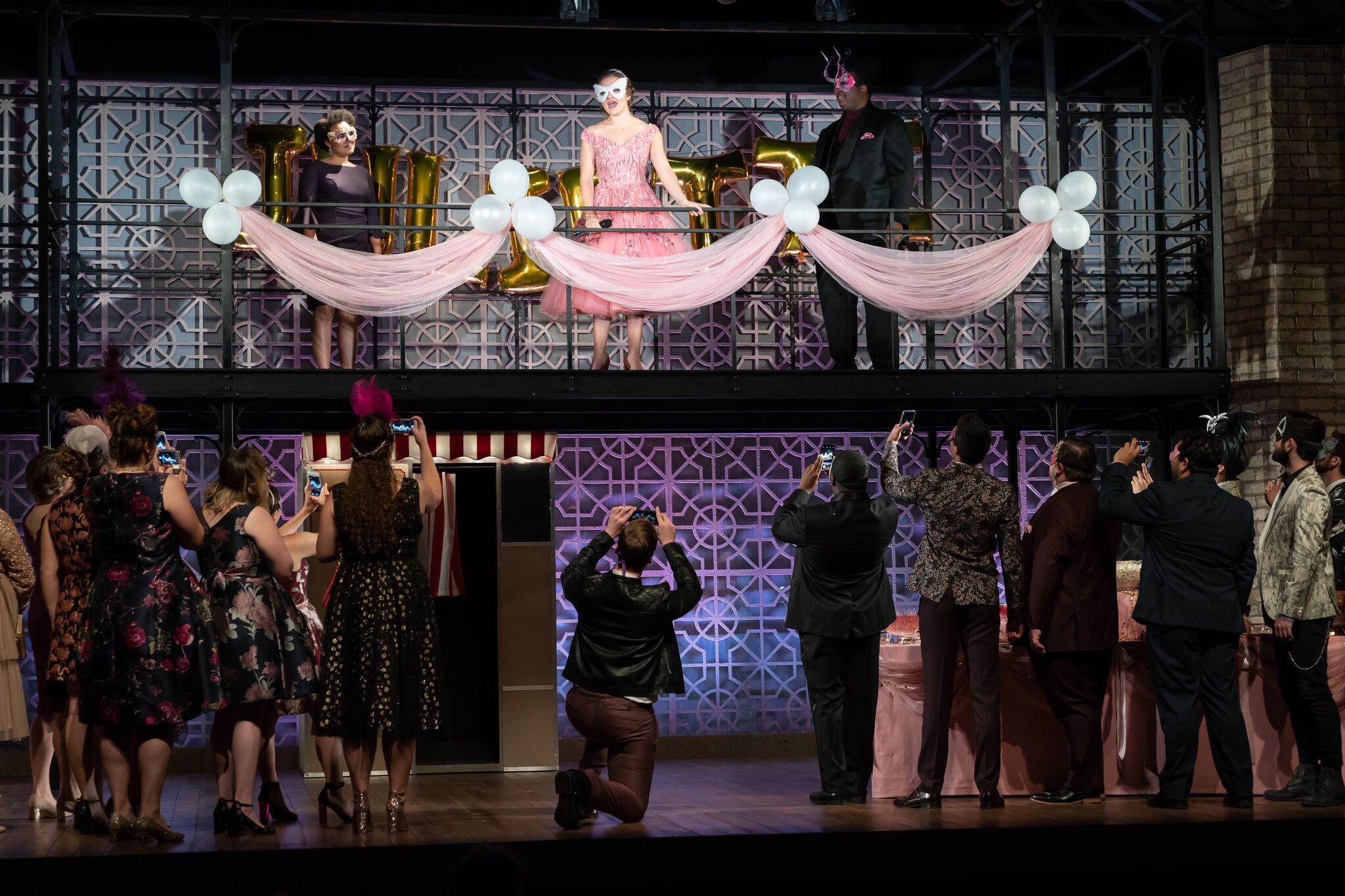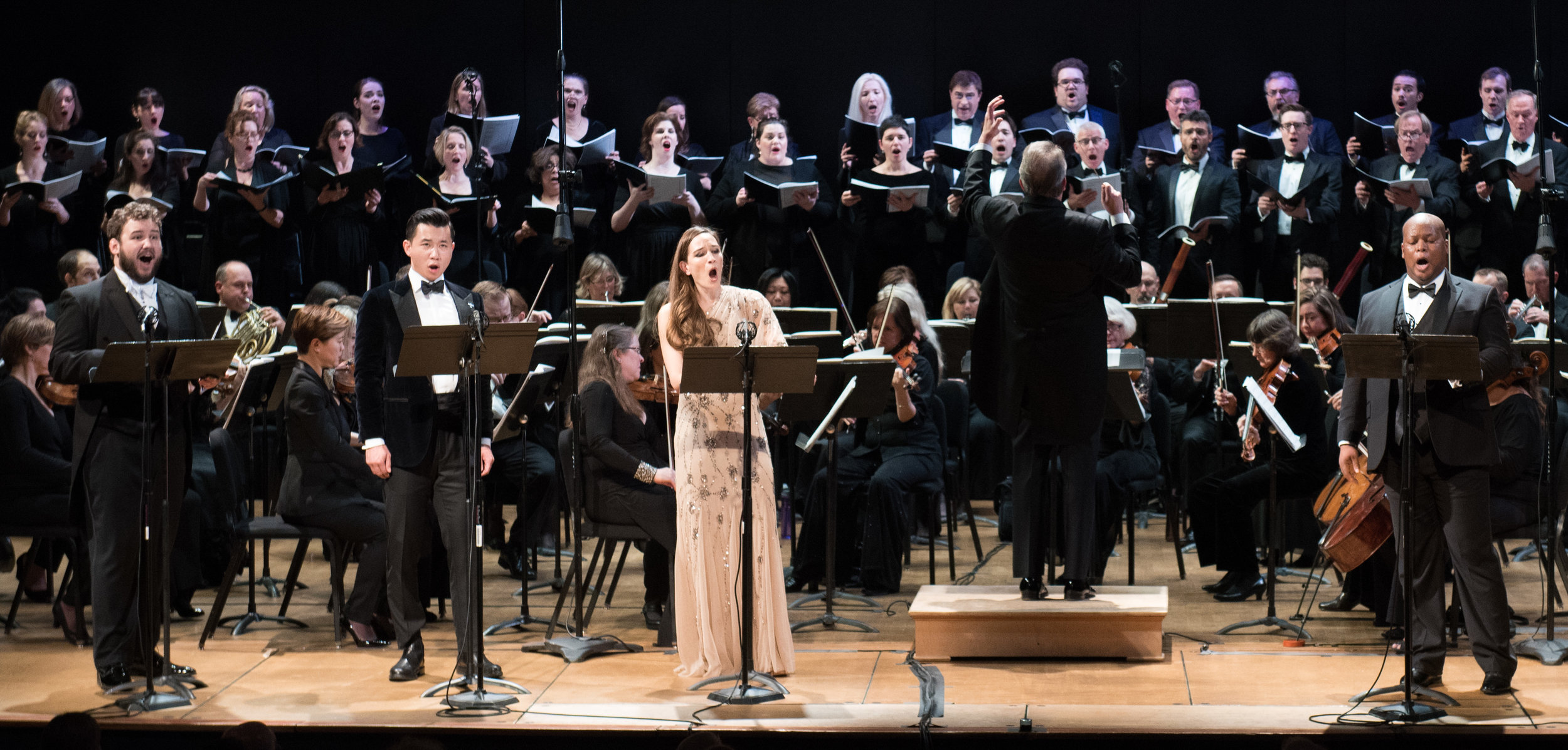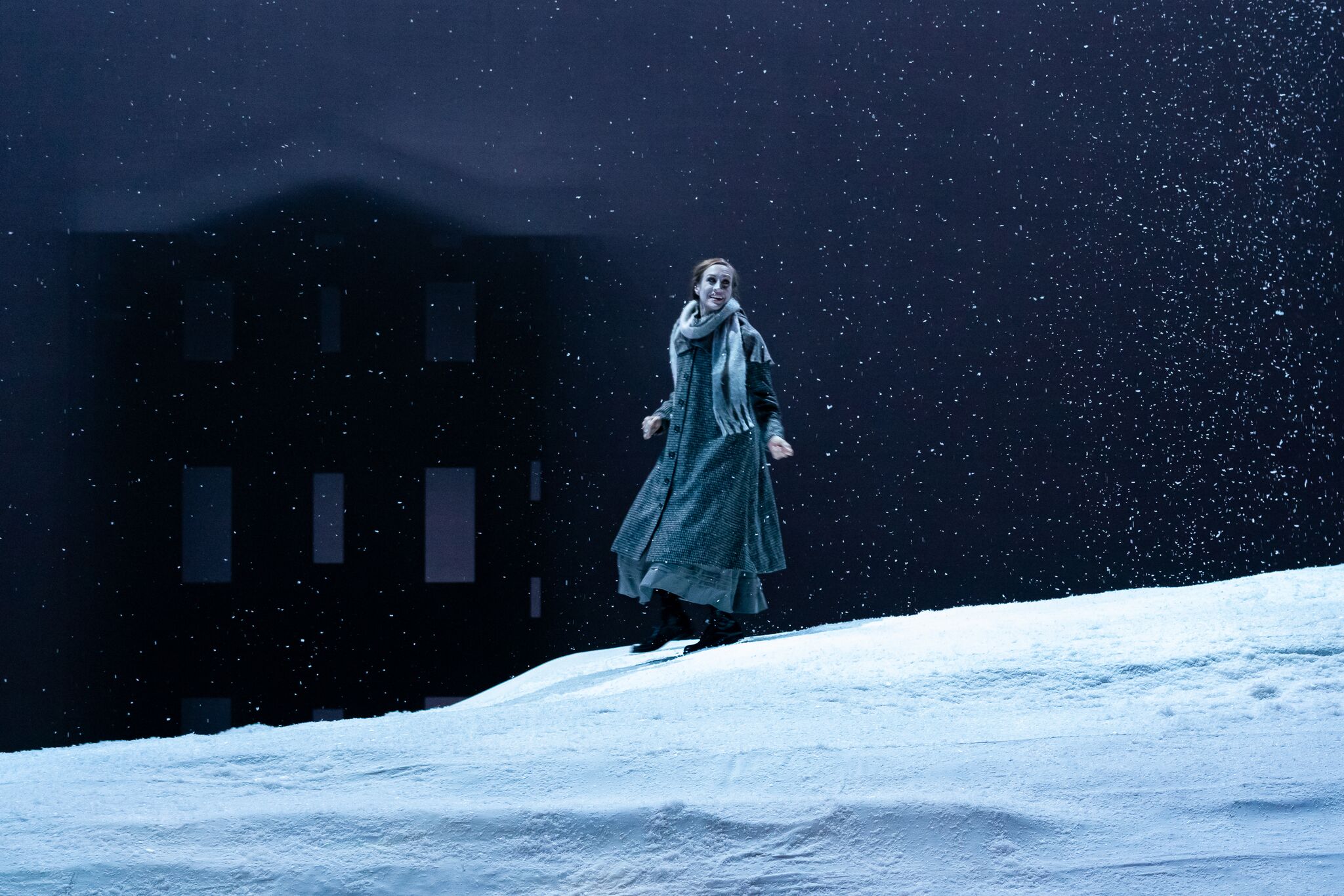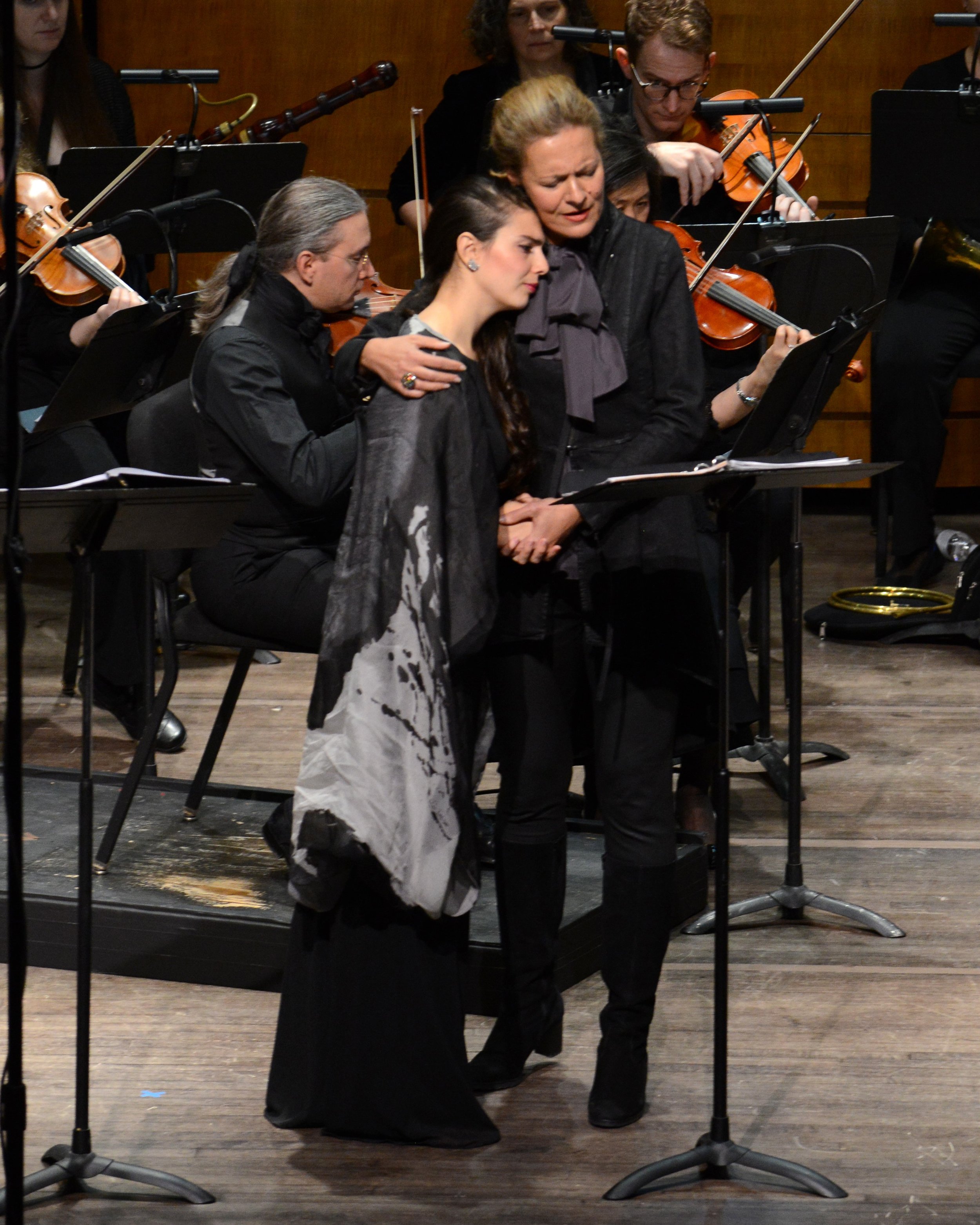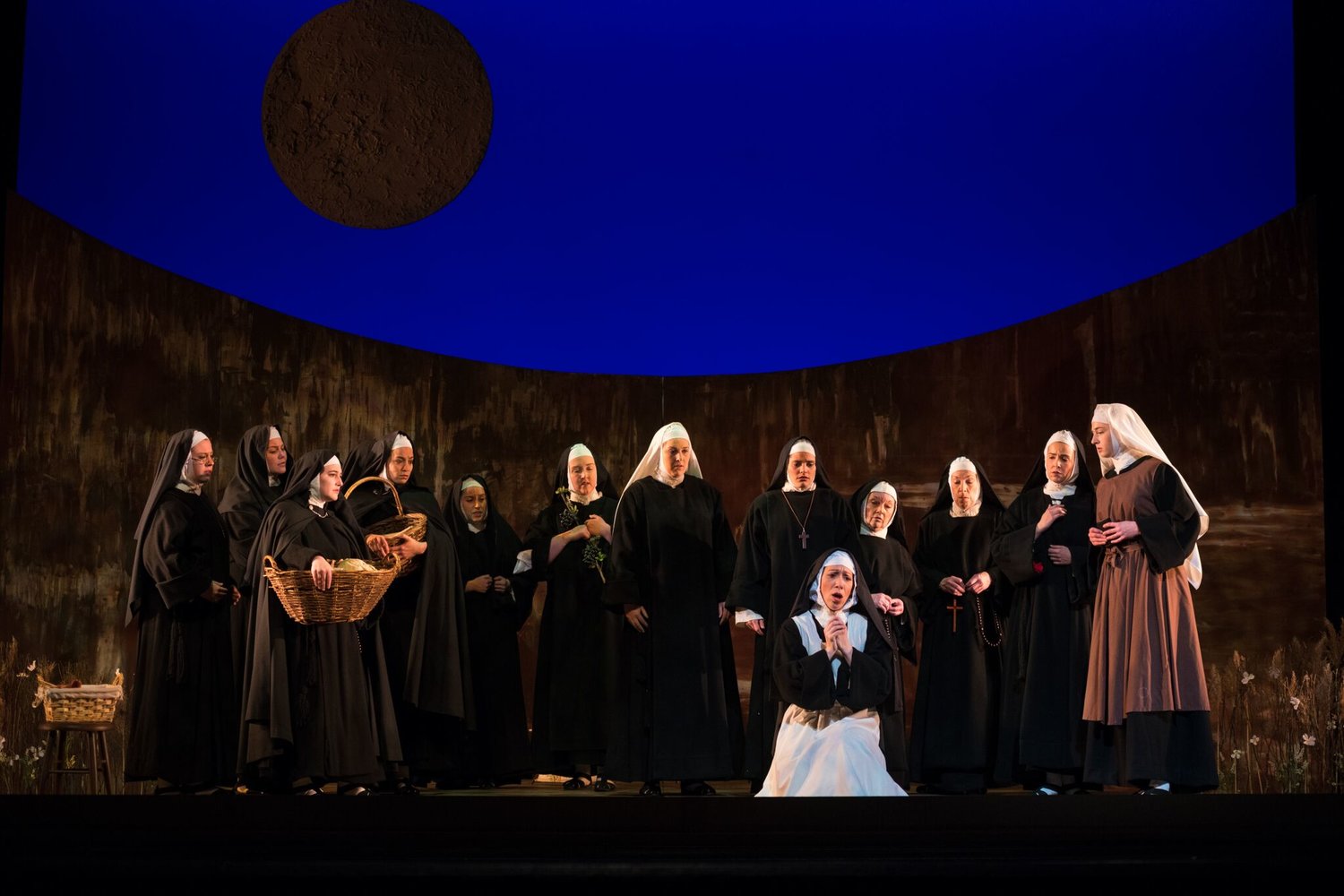I love opera; however, I know opera can be a little intimidating for newbies and people who think they might like to give it a try (and honestly, for most of the rest of us too). It is commonly seen as expensive and formal and the venues are most often in the middle of a metropolis with all the attendant traffic and parking issues. Sometimes even knowing where you can see opera is an issue, much less where to park. My blog can help with the where, and I include a ‘The Fan Experience’ section at the end of opera blog posts where I address such issues. I offer some general comments below on attending-opera challenges, but here’s the thing, live opera is definitely worth it, sort of like trekking carefully through a few briars to get to a picnic, and no insect repellent is required, at least in the opera houses I visit. For me, the agony while not insignificant is minor, but the ecstasy is to be coveted. I read recently a comment by a famous opera director that someone watching live opera should have their senses intoxicated by the experience, and when the music is good, the singing is good, the dancing is good, the costumes are good, the scenery is good, and the story-telling is good, that happens.
Moby Dick, 2018: Photo by David Bachman Photography; courtesy of Pittsburgh Opera.
I listen to radio and watch video recordings of opera all the time but let me re-emphasize: Live opera is a different experience. First of all, opera singers don’t wear microphones. That’s one of the beauties of opera, what you hear comes directly from the singer’s vocal cords. You might wonder how they do it, filling up a 2,000-seat arena with sound. It’s difficult. Opera is also visual, and when attended live, you get to choose what you focus on, not the video director, and there is frequently a lot going on. Watching live is different in two other respects. First, you are cloistered, so your attention is focused and intense, heightening the experience. Second, you are responding individually but also in a group. On an emotional level you are connecting with your fellow human beings; you will be able to feel it. I compare the experience of recorded versus live opera with hearing your spouse say I love you over the phone versus saying it in person, both good, but two different experiences - make mine live.
The Price: Live opera is expensive, with good reason (lots of singers, chorus members, dancers, costume designers and makers, directors, conductors, orchestra members, production staff members, theater managers, etc. that must be paid), but not much more so than other live events. The best seats are expensive but good seats can usually be found for $50-100, sometimes cheaper, even in the major venues – have you checked the ticket prices at rock concerts and professional sporting events these days? Also, companies offer discounts for season tickets or multi-performance packages, student discounts, and promotions (sign up for opera company mail lists/newsletters to learn about these). I’ve not sat in a seat in any location where I didn’t enjoy the performance, so don’t eschew the cheap seats, though I avoid seats with restricted view. The smaller companies usually offer lower prices to their events frequently using more regional singers and/or beginning artists/students, who are nonetheless excellent singers, and some are opera stars in the making. I also recommend concert opera performances, which are a little less expensive, for the great sound. Some of my peak opera experiences have been at small venues and at concert opera performances.
Left photo - Romeo et Juliette, 2018: Photo by Scott Suchman; courtesy of Wolf Trap Opera. Right photo - Sapho: Photo by Don Lassell; courtesy of Washington Concert Opera.
The Dress Code: Opera is not as formal, or as much of a high society event, as it once was. I see many casually attired patrons these days, particularly in the smaller venues, and we commoners make up a sizable percentage of opera attendees. I usually wear a sport coat, not always a tie, and sometimes a sweater instead of a coat. It is an occasion to dress up if you want to and many people do wear suits, and even the occasional tuxedo and evening dress for the romance (Nicholas Cage and Cher in “Moonstruck”), but others wear slacks, blouses, nice pullover shirts, the sort of crowd you’d see in a nice restaurant. Be aware too that short grand operas are well over 2 hours with intermissions and can run up to five hours; so, make sure your finery allows you to breathe and relax.
The Barber of Seville: Photo by Scott Suchman; courtesy of Washington National Opera.
Opera etiquette and house rules: You may like to chat with a spouse or friend during performances, but for opera, your neighbors will definitely not be pleased. Once upon a time, operas were raucous affairs, but not today. (Unfortunately, I think) Opera performances now require church-like behavior; be quiet and be reverent. Most people don’t want to be distracted or miss a note of the music, which I understand, but would trade for more fun. Also, turn off the cell phone and don’t text during an opera; some companies are experimenting with allowing texting, and I like to hit Twitter and Facebook during the intermission. And big taboo, no photos during the performance, with or without flash – house rules. The photos in this report are from OperaGene blog reports and were provided by the sponsoring opera company; additional photo information can be found in the blog reports themselves. Finally, at the performers will come out and take bows at the end. If at all possible, stay and applaud until the final curtain falls. Part of their reward is to know that they have touched you, affected your life, that their efforts meant something to you.
Street Scene, 2018: Photo by Ben Schill Photography; courtesy of the Virginia Opera.
Where to sit: In my humble opinion, you can have the best view or the best sound, choose one. For me, the closer, the better you can see the singers and what’s on stage up close. The farther back and higher up, the better the sound. And center is better than the sides for sound and viewing. But really, the only seats that I avoid are those with restricted view, including those so close up that it’s difficult or impossible to see the supertitles (in English) overhead. Many people prefer seats in the balconies, which are usually cheaper, and I think, offer superior sound.
Lucia di Lammermoor, 2018: Photo by Steve Pisano; courtesy of Opera Philadelphia.
Bodily needs: Another aspect of opera length is a need to plan your bathroom breaks. Intermissions are usually about 20 minutes; you may have to choose between enjoying a martini and relieving your bladder. Shorter operas are sometimes given without an intermission. Check ahead. Food is not welcome inside the auditoriums and typically only snacks are available during intermission. When we visited Teatro di Liceu in Barcelona, food and drink was served in the hallways during intermission; lots of champagne and cheese and Iberian ham subs were being scarfed down. I would really like to see a company experiment with casual Tuesdays, serving pizza slices and beer during a lengthened intermission. Probably you will want to have dinner either before or possibly after the opera. Some opera venues have in house restaurants, and some opera houses are allowing drinks inside the theater if you purchase a special spill-free cup.
Left photo - Cerere Placata, 2018: Photo by Russell Hirshorn; courtesy of Opera Lafayette. Right photo - Suor Angelica, 2018: Photo by Moonloop Photography; courtesy of Opera Delaware.
The Hassle: Can’t do much about the traffic and parking woes of big cities, but often public transportation is available. I’ve found the subway to the Foggy Bottom Metro stop and taking the Kennedy Center’s own buses from there to be a cheap and efficient option in DC. In Pittsburgh, I’ve stayed downtown within walking distance to the Benedum Center, and in Philadelphia, I stayed a little out of city center to get a cheaper hotel rate and take a taxi to the Academy of Music, cheaper than I expected. On the couple of visits I typically make to the Met each year, we choose a hotel within walking distance; getting a taxi in Manhattan close to opera/theater performance times can be almost impossible. Traveling out of town to attend opera is a very cool mini-vacation since you can also take in the restaurants and attractions in a different city. There are also smaller companies with venues that sometimes have more accessible locations where parking is free or at least cheap. Company websites usually have parking and access information; I often like to talk to the ticket office/guest services staff who can be very helpful in answering most of your questions, even making hotel and restaurant suggestions. Getting there early enough to have dinner close by is a good strategy that can help take the sting out of commuting. And always allow more time for commuting than you think you will need; traffic will have its way. Finally, I recommend getting there early enough to hear the pre-opera talk that most companies offer today. There is a good chance the knowledge and insights to be gained will increase your enjoyment of the performance.
Special needs: Opera venues offer special seating and help with access for those with special needs such as limited mobility. Consult with the house staff ahead of time.
OK, getting up off the sofa and heading to the opera house is a hassle and requires effort, but getting to hear live opera is a big reward. Opera live is different. It’s not that rare that I attend an opera performance, then go home and listen to a recording of that opera, only to be disappointed; it had so much more appeal hearing it live. The entertainment value of the experience is high, and sharing with your fellow man the sense of beauty that good opera commands is a bonding, humanizing experience. It will be rare, if ever, you regret the expense or the effort – if your wife forces you to wear a tux, you might regret that, justifiably.

